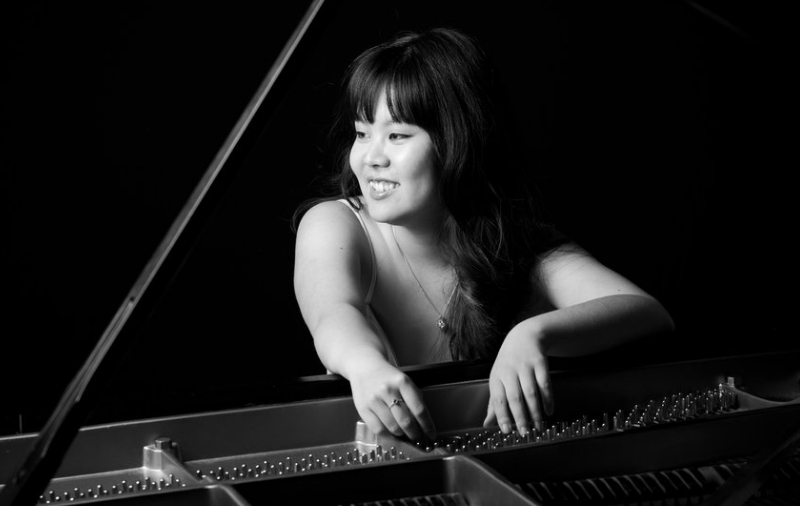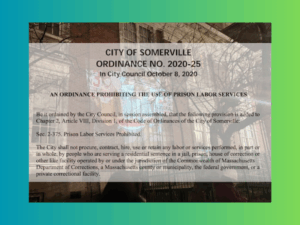How the musician brings a joy and love of piano to East Somerville
(Somerville Wire) – Having moved from Northern California, where she performed as a soloist and chamber musician, pianist Sakurako Kanemitsu is carrying her “colorful and creative” interpretations of classical music and melodies of our time to Somerville. She offers private lessons, which consist of technique, repertoire, music theory, and ear training/sight reading instruction. Celebrating the elegance and poignant simplicity that can be found in her repertoire, Kanemitsu shares what this art means to her.
How have you become a pianist, and what is your background as a musician? What is your experience as an artist like?
I decided to become a pianist in my last couple of years of high school. My college advisor asked me a very simple question, “What can you imagine yourself doing for 7-8 hours a day that you wouldn’t be tired of?” The answer that immediately came to mind was to play the piano.
Until that point, I never thought of my piano skills as exceptional, and seeing child prodigies at recitals and competitions did not exactly give me the motivation to feel that I could be a worthy “contender.” I eventually realized that such a mindset isn’t helpful, and that I should just focus on my own growth to becoming a better pianist, rather than compare myself to others. Throughout my undergraduate and graduate studies, I became much more confident in my skills. My academic career confirmed for me that I truly enjoy doing this, and while being a musician certainly comes with its own great stresses, I honestly wouldn’t be happy doing anything else.
I currently perform as a soloist and chamber musician, curating my own programs (occasionally setting up fundraising concerts), as well as collaborating with dancers, choreographers, and of course, other musicians.
You began your studies in Japan at the age of 5 years old. You’ve performed in Italy, Germany, and the United States. What does it mean to study and perform in different countries and learn about different cultures?
I think that it is one of the best things anyone can do. To take yourself out of your own environment, and to adapt to new situations, new languages, and new cultures is a great catalyst for personal growth.
The first time I was invited to perform and participate in a music festival in Italy left such a huge impression on me. I was about 18 years old, and I just couldn’t believe that my piano skills were taking me to Europe! Italy still remains one of my most favorite countries to visit. Visiting and performing in Italy and Germany just really put into perspective the richness of the classical music culture, and environmentally what the western European composers must have experienced when they were composing their pieces. I have also lived in California, Japan, New Zealand, and now, Massachusetts. As a child of multicultural upbringing, I think it’s important to hold onto your roots, but to also be open to other cultures and other ways of living and thinking because you never know what your blind spots are.
Do you have favorite pieces or composers? What do you enjoy about them?
A very difficult question! It varies depending on what projects or recitals I’m working on at the time, but I will always have a huge soft spot for Frédéric Chopin, Arvo Pärt and Joe Hisaishi’s music. I never get tired of listening to their works, and their sense of melody and harmony is always so beautiful, nostalgic, and profoundly unique.
What do you like about holding private lessons? What is your approach to teaching, and what inspires you about working with your students?
I’ve taught in pretty diverse settings throughout my career, and I have always preferred the platform of private lessons. That time you have one on one with your student, whether it’s as short as a half hour or up to an hour, is so special. It is the time you carved out for yourself, to self-improve by learning this skill, and I am such a big fan of cultivating that.
I teach my students with the baseline goal of gaining the skills to hopefully be able to play whatever they would like on the piano. I think that is so important. Not everyone is going to become a concert pianist, but no one should be deprived of the desire to create and play music that makes them happy through a medium that they feel a connection to. While my expertise is in Western classical music, I expose my students to all different types of genres. If a student has an attraction to, say, jazz, I guide them the best I can and then let them go to someone more qualified when I feel that I can no longer be a mentor to them.
What inspires me about working with my students? It’s those moments when they overcome some difficulty in the music, and their eyes light up and they’re proud of themselves. Or when a student tells me that piano practice was what kept their sanity during the pandemic, or helped lift them out of depression, or it’s the instrument that their grandmother had played, and they wanted to follow in her footsteps.
Music is a difficult, and at times, extremely frustrating skill to learn. On top of that, keeping consistent daily practice is difficult for most people to do, but if you are able, the payoff is so great. It really inspires me when I see my students understand that and reap its rewards.
You are based in East Somerville. What do you like about this part of the neighborhood? What would you like to bring to East Somerville, through your music?
I am still a bit of a newcomer to the area, but my husband and I have instantly felt comfortable here, and we’re enjoying it a lot. We love that it’s not far from the city, but still has that quieter suburban vibe. We are especially enjoying the amount of delicious Mexican food that is so readily available! We were a bit worried when we moved out of California to East Somerville that we would be deprived of great Mexican cuisine, but we have absolutely no concerns about it now. (Shout out to Rincon! Our favorite!)
I would love to see more live concerts happen in East Somerville, and I would love to be part of that scene. Since Cambridge and Boston are not far from here, most of the higher-profile concerts seem to be in that vicinity. But wouldn’t it be great to have a concert series that is also happening on a hyper local level?
As for now, my work as an artist is to keep presenting the piano and its huge range of repertoire to larger audiences by performing and teaching students the beauty and the art of playing the piano. I am currently accepting new students, so if you are interested in taking piano lessons, if you’re an artist and would like to collaborate, or simply would like to be on my email list for future concerts, please visit my website www.sakurakopiano.com.
This article is syndicated by the Somerville Wire municipal news service of the Somerville News Garden project of the Boston Institute for Nonprofit Journalism.
All Somerville Wire articles may be republished by community news outlets free of charge with permission and by larger commercial news outlets for a fee. Republication requests and all other inquiries should be directed to somervillewire@binjonline.org. Somerville Wire articles are also syndicated by BINJ’s MassWire state news service at masswire.news.
SUBSCRIBE TO THE SOMERVILLE WIRE EMAIL NEWSLETTER: https://eepurl.com/hpBYPv
Check out all our social media here: https://linktr.ee/SomervilleWire.
Shira Laucharoen is assistant director of the Boston Institute for Nonprofit Journalism and assistant editor and staff reporter of the Somerville Wire.








